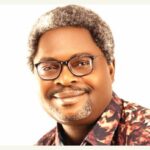Wike’s Aide Calls for National ID Requirement on Social Media Platforms
Wike’s Aide Calls for National ID Requirement on Social Media Platforms

A top aide to the Minister of the Federal Capital Territory (FCT), Nyesom Wike, has stirred debate after proposing that Nigerians should be required to provide their National Identification Number (NIN) or another form of valid identification before opening or maintaining social media accounts.
The aide argued that the measure would curb the rising spread of fake news, online scams, cyberbullying, and the misuse of digital platforms for political propaganda and hate speech. According to him, anonymity on social media has emboldened individuals to spread misinformation without accountability, a trend he described as dangerous for national unity and public trust.
> “Just as you need a form of identification to open a bank account, the same should apply to social media. People must know that freedom of expression comes with responsibility,” he said.
Concerns About Online Anonymity
The proposal reflects growing concerns among public officials about the influence of unregulated online discourse. Nigeria, like many countries, has witnessed cases where false information spreads rapidly across platforms such as Facebook, X (formerly Twitter), TikTok, and WhatsApp, sometimes leading to panic or even violence.
Supporters of the idea believe that linking accounts to verified IDs would discourage reckless speech and help security agencies track offenders. They argue it could make the internet safer for genuine users, especially young people.
Critics Raise Red Flags
However, critics warn that the move could infringe on citizens’ digital rights and privacy. Digital rights activists fear it might be used as a tool for surveillance and censorship, stifling free expression in a country where social media has become a major avenue for civic engagement and holding leaders accountable.
Some also note that not all Nigerians have access to NIN registration, and a strict requirement could exclude millions from online participation, especially those in rural areas.
A Growing Global Debate
The proposal is not unique to Nigeria. Countries such as India, Australia, and the United Arab Emirates have previously floated or implemented similar policies, sparking global conversations about the balance between digital safety and freedom of speech.
As the debate unfolds, it remains unclear whether the Nigerian government will formally consider or adopt the recommendation. What is certain, however, is that the idea has already set off conversations among citizens, activists, and policymakers on the future of online e
xpression in the country.
TRENDING SONGS
 Shock in Anambra: Bride Disappears Moments Before Wedding
Shock in Anambra: Bride Disappears Moments Before Wedding
 Nigerian Woman Returns ₦330 Million Accidentally Credited to Her Account
Nigerian Woman Returns ₦330 Million Accidentally Credited to Her Account
 APC Don Reach Morocco?’ VeryDarkMan Reacts to Seyi Tinubu Poster
APC Don Reach Morocco?’ VeryDarkMan Reacts to Seyi Tinubu Poster
 Bride Breaks Down in Tears as Wedding Meals Were Kept Secretly While Guests Go Home Hungry
Bride Breaks Down in Tears as Wedding Meals Were Kept Secretly While Guests Go Home Hungry
 Odogwu by Day, Robber by Night: How Marriage Joy Turned Into Tragedy
Odogwu by Day, Robber by Night: How Marriage Joy Turned Into Tragedy
 Nigerian Officials Allegedly Pocket N4–6B Weekly Through Smuggling Cartels at Seme–Badagry Border
Nigerian Officials Allegedly Pocket N4–6B Weekly Through Smuggling Cartels at Seme–Badagry Border
 Ahmad Yerima: Naval Officer to Face No Sanctions After Clash with Wike – Matawalle
Ahmad Yerima: Naval Officer to Face No Sanctions After Clash with Wike – Matawalle
 Trending Video: Muslim Man Joins Wife in Hallelujah Challenge ‘Dress Like Your Miracle’ Night
Trending Video: Muslim Man Joins Wife in Hallelujah Challenge ‘Dress Like Your Miracle’ Night
 Woman Seeks Advice as Late Brother’s Wife Refuses to Mourn Him Following His Death With Alleged Mistress
Woman Seeks Advice as Late Brother’s Wife Refuses to Mourn Him Following His Death With Alleged Mistress
 Nobody Cares About Fine Girls In The UK, I Miss Nigeria — Nigerian Lady Laments
Nobody Cares About Fine Girls In The UK, I Miss Nigeria — Nigerian Lady Laments
Share this post with your friends on ![]()













